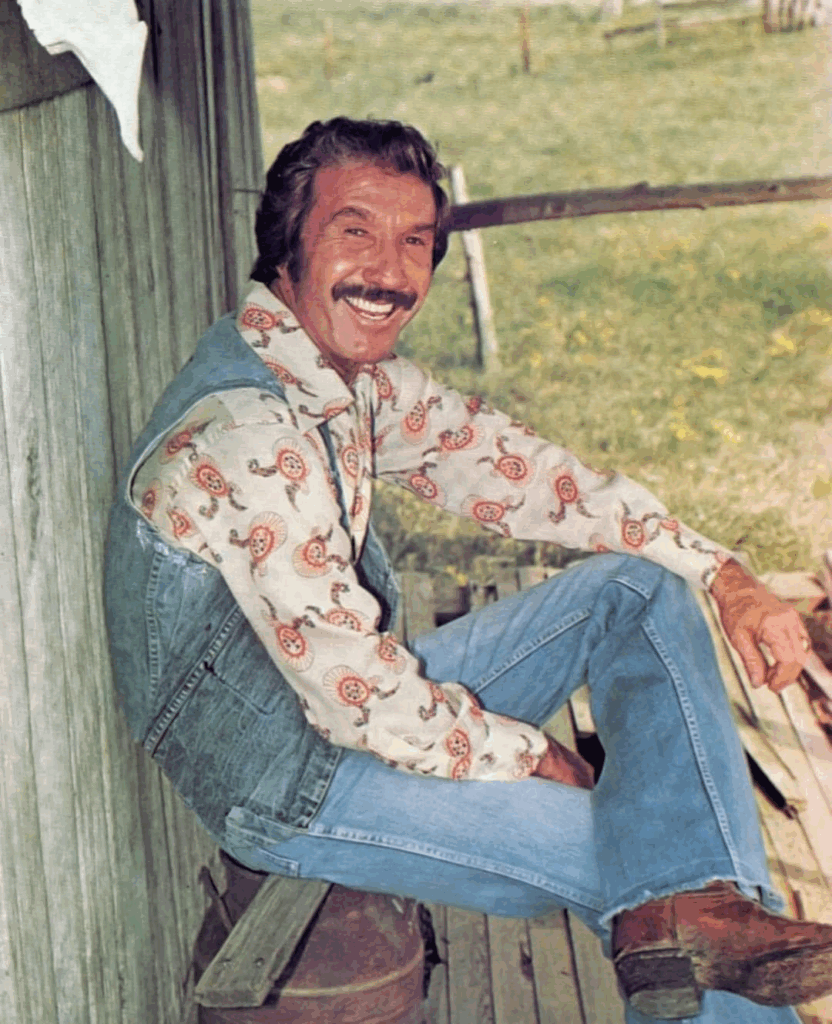A Lighthearted Ode to the Trail: The Charming Spirit of “Doggone Cowboy”
Every now and then, a song comes along that feels like a grin beneath a dusty hat — warm, playful, and full of the good-natured spirit that once defined the American West. Marty Robbins’ “Doggone Cowboy” is just such a tune. Released in 1956 on his album Rock ’N Rollin’ Robbins, the song quickly became one of his early Western favorites, revealing not the tragic, lonesome cowboy of later ballads, but a humorous, affectionate look at a wanderer who can’t stay put. It’s a piece that still brings a smile to listeners who remember the golden days of country radio and the gentle wit of Robbins’ early storytelling.
Though the album itself explored several musical textures, “Doggone Cowboy” stood out as one of the clearest reflections of Robbins’ passion for Western themes. It reached the Billboard Country & Western chart, becoming a modest success and introducing the public to Robbins’ ability to blend charm, humor, and frontier imagery. Long before “El Paso” swept the charts, songs like Doggone Cowboy helped shape him into the beloved Western storyteller he would become.
What makes the song special is its lightness — a joyful contrast to the solemnity of his later masterpieces. “Doggone Cowboy” paints the picture of a cowboy who is, to put it plainly, impossible to tie down. He rides away again and again, driven by that irresistible urge for open skies, campfire smoke, and the freedom of the range. The narrator watches him go, half-exasperated and half-admiring, calling him a “doggone cowboy” — a phrase full of affection rather than frustration.
The song’s humor never feels forced. Robbins captures the quirky nature of the cowboy life, the way men of the West were always drawn back to their horses, their trails, and their wandering ways. And yet, beneath the playful tone, there is a gentle sadness — a recognition that some people are simply not made for settling down. They belong to the wind, to the long stretches of prairie, to the restless calling of distant horizons.
Musically, the song is pure early Robbins: bright guitars, a steady, easy rhythm, and that unmistakable voice — smooth, friendly, eager to tell a story. Robbins sings with a relaxed smile in his tone, as though he himself is shaking his head at the cowboy’s ways while secretly admiring the man’s freedom. His delivery carries the warmth of mid-1950s country music, when recordings were simple, honest, and built around storytelling rather than spectacle.
Listeners who return to “Doggone Cowboy” today often find themselves transported back to a simpler time — when radios crackled softly on porch evenings, when country songs were filled with humor and heart, and when the cowboy was not just a symbol of toughness, but of stubborn charm. Older audiences especially feel a familiar comfort in this song; it reflects the personalities of real people they once knew — men who could never stay long in one place but were loved just the same.
There is also something deeply human in the song’s portrayal of the cowboy spirit. Robbins understood that not everyone was meant for a quiet life. Some hearts crave movement. Some souls are shaped by distance. And the song never condemns that restlessness — it accepts it with a fond smile. The phrase “doggone cowboy” feels like a shrug of affection, a recognition that the world needs people like him too.
In many ways, the song is a reminder of the gentler corner of Robbins’ artistry — the side that could laugh, that could tease, that could love his characters even when they exasperated him. “Doggone Cowboy” may not carry the drama of “Big Iron” or the tragedy of “El Paso,” but its charm is undeniable. It’s a piece of musical sunshine, preserved in Robbins’ warm baritone and his timeless affection for Western life.
And when that last cheerful chord fades, you’re left with an image of a cowboy riding away once more — hat tipped, heart free, leaving behind little more than dust on the trail and a fond, exasperated smile in his wake. A doggone cowboy, through and through.
